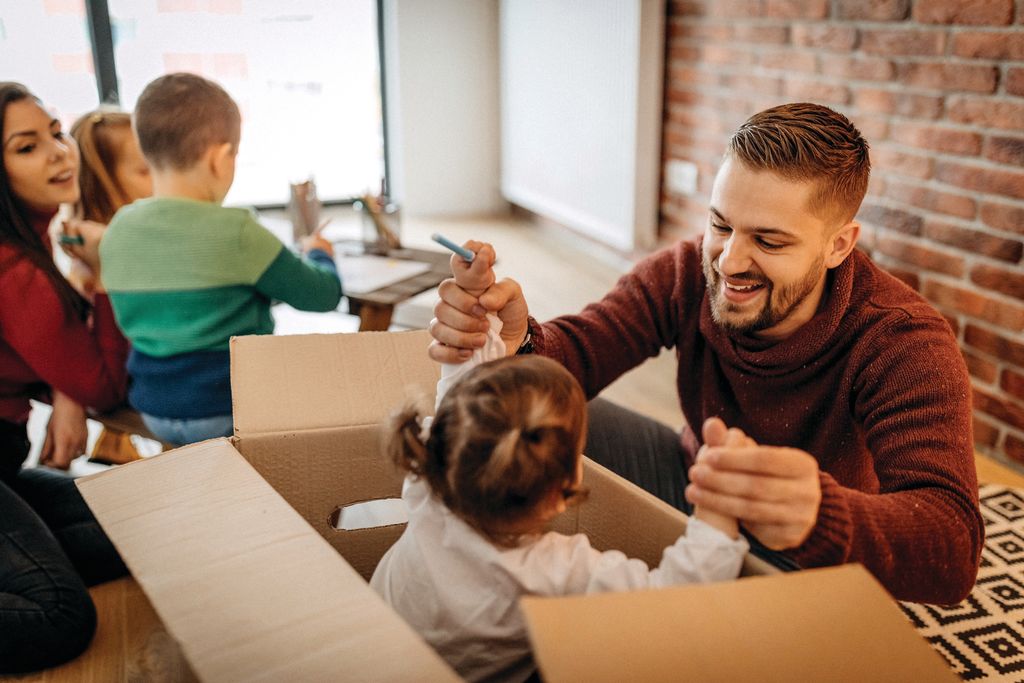Five things to get sorted before moving day for a more stress-free move

Moving can be physically, emotionally and mentally draining. But the sooner you start preparing for the big day, the more organised and relaxed you’ll feel when it finally comes around.
Here are five jobs to get sorted before moving day for a more stress-free move.
Declutter
If you want to reduce the time and cost of moving, have fewer things to move.
“There’s a real value in getting rid of things that weigh you down,” says Gina Ciancio, editor of Style Curator.
As you sort through your things, consider which items could be given a second chance at life.
The clock sitting at the back of the cupboard? Take it to Vinnies or the Salvos. The suits that you don’t fit into any more? Donate them to local charity Communities@Work, which helps disadvantaged people nail that job interview. Your overflowing linen cupboard may have fabric that would be useful to animal shelters.

“We come across people who haven’t had a cull in years,” says Debbie Foster from Grace Removals in Canberra. “If you haven’t used it in years, you’re probably never going to use it.”
Moving is also a great opportunity to replace dated appliances with more energy-efficient ones.
Canberra-based energy provider ActewAGL offers rebates for heating and cooling appliance upgrades to help you prepare your new home for all four seasons. They also have a fridge buyback system where they pick up your old fridge or freezer for free and credit $30 to your electricity account. The old appliance is responsibly recycled.
Organise the removalists
The more professional help you can get, the easier the move will be.
“I strongly recommend outsourcing [moving] to a professional and packing your personal items yourself,” says Ciancio. “Leave the heavy lifting to others, because it’s intense, really.”
To ensure availability and give the removalists enough time to provide an accurate quote, it’s best to book two to three weeks in advance at this time of year, advises Foster.
If you’re moving over the busier period of November to February, give a month’s notice to be safe.

Get connected
Moving into a new home without an energy connection is far from ideal. When you’re surrounded by boxes, electricity and gas can easily slip even the most organised of minds. This is when moving your energy connection with a local company can have its benefits.
ActewAGL offers same-day electricity connection online before 8pm.
“ACT residents can move or connect their energy online with us by jumping on my.actewagl.com.au. They can be set up and ready to go in just a few clicks,” says Tony Muckle, from ActewAGL.
The company also offers fortnightly and monthly payment plans under its EvenPay scheme to make bills more manageable, which can help if you’re moving to a property with a pool, or a bigger area to heat and cool.
Plan ahead
People either love spreadsheets or cringe at the thought of them. But spreadsheets can help with organising schedules, contents of boxes and utilities.
“Create a simple spreadsheet, it doesn’t have to be too complex. Have a numbering system with your boxes and know which room it’s going to belong to,” says Ciancio.

Start packing early
The earlier the packing starts, the more prepared you’ll be on the day.
Hire boxes of the correct size and strength so they pack together neatly. Boxes with rails can be hired to hang clothes.
“Have a systemised approach,” says Ciancio.
Each packed box should weigh no more than 20 kilograms. The smaller boxes can hold heavier items, such as plates. By stacking them on their sides wrapped in newspaper, the box can sustain the weight of heavier boxes stacked on top. Fill any gaps in the box with crushed paper.
Lighter objects, like plastic cups, wooden spoons and containers can be packed in the larger boxes. Cutlery can be wrapped in their bundles and glasses are best wrapped and stacked vertically for strength.
“In our trucks, we have about 100 blankets to protect furniture,” says Steve Van der Meulen from Canberra-based Passion Removals. “Having the correct equipment does make the job easier.”
This article has been created in partnership with ActewAGL.
We recommend
States
Capital Cities
Capital Cities - Rentals
Popular Areas
Allhomes
More
- © 2025, CoStar Group Inc.






